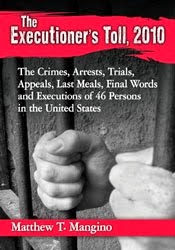The Pennsylvania Law Weekly
April 9, 2012
The U.S. Supreme Court extended the protections of the Sixth Amendment — the right to assistance of counsel — to plea bargaining. The court's decision in two cases last month has far-reaching implications for the criminal justice system.
In Lafler v. Cooper, No. 10-209, the court was asked to review whether an attorney's advice to his client to reject a favorable plea bargain based on the lawyer's incorrect understanding of the law was ineffective assistance of counsel. In Missouri v. Frye, No. 10-444, the court reviewed whether counsel's failure to disclose the terms of a favorable plea offer was a violation of the Sixth Amendment right to a fair trial.
Galin Frye was charged with a felony for driving with a revoked license. According to the opinion, he qualified for a public defender. The district attorney sent Frye's lawyer a letter offering a reduced charge and 90 days in jail. The lawyer never communicated the plea offer to Frye.
Frye subsequently made an open plea and was sentenced to three years in prison. He filed a claim pursuant to the Sixth Amendment alleging ineffective assistance of counsel. The Court of Appeals agreed and the state of Missouri appealed.
In Anthony Cooper's case, a Michigan prosecutor communicated a verbal plea offer to Cooper's attorney. According to the opinion, Cooper would plead guilty and receive a recommended sentence of 51 to 85 months in prison. Cooper made it clear he would have accepted the plea.
However, Cooper's attorney talked him out of accepting the plea based on a misunderstanding of the law. He incorrectly thought because the victim was shot below the waist, the state could not establish the element of intent. Cooper's lawyer thought a better plea deal would come closer to trial. Instead, Cooper went to trial and the jury found him guilty. He was sentenced to 185 to 360 months in prison.
In Frye, the court held that "the Sixth Amendment right of effective assistance of counsel extends to the consideration of plea offers that lapse or are rejected."
Justice Anthony Kennedy wrote for a 5-4 majority, "The reality is that plea bargains have become so central to the administration of the criminal justice system that defense counsel have responsibilities in the plea bargain process, responsibilities that must be met to render the adequate assistance of counsel that the Sixth Amendment requires."
In Cooper, the court held, "Where counsel's ineffective advice led to an offer rejection," and the prejudice was that the defendant had to go to trial, the onus will be on the defendant to show that the bad advice made him reject an offer he otherwise would have accepted.
What will a defendant claiming ineffective assistance of counsel during plea negotiations have to prove? The court has established a three prong analysis. A defendant must prove he would have accepted the plea bargain if not for bad legal advice; there was a reasonable probability that prosecutors would not have withdrawn the offer before trial; and a judge would have ultimately accepted the plea.
Defense lawyers will now be subject to scrutiny in terms of their plea-bargaining negotiation on behalf of their respective clients. Most lawyers already do what these opinions suggest will be subject to review by the court. By and large, lawyers convey plea offers to their clients and provide those clients with competent advice about accepting or rejecting the offer. But, will that be enough in the future?
Just as every defendant entering a guilty plea submits to a colloquy on the record in open court contemporaneous with entering a plea, defense counsel may seek to colloquy his client on the rejection of a plea bargain. How does defense counsel conduct such a colloquy without divulging the strategy to be employed during trial?
Will prosecutors need to employ yet another layer to the pretrial process?
In Pennsylvania, a defendant is afforded a preliminary arraignment, a preliminary hearing, a formal arraignment, in some counties, a pretrial conference and then a trial call or guilty plea hearing. Prosecutors may find the need for a plea-offer conference, wherein the plea offer is made in open court, the defendant acknowledges the offer and is given a specific period of time to respond.
The court suggested a written plea offer may suffice. That did not work for Frye; he was never informed of the written offer. A written offer signed by the defendant, either accepting or rejecting the offer in writing, may solve part of the problem but it still leaves open the issue of ineffective assistance as an inducement to reject a plea bargain. What if the defendant signs off rejecting the plea on the advice of counsel? The claim of ineffective assistance continues.
A North Carolina district attorney, Jim O'Neill, told the Winston-Salem Journal he strives to make sure every defendant facing criminal charges knows about plea offers. Plea offers are written down and placed in the public court file, he said.
"My office always takes great care to see to it that a person charged with a serious felony is informed on the record in open court as to what exactly the plea offer available is," O'Neill said. "That way, a defendant can make an informed, rational decision as to what inherent risks he or she will be exposed to during the course of a jury trial."
How about those cases that have long ago been adjudicated? The defendant rejected a plea offer, or no record exists that a plea offer was communicated and the defendant was convicted at trial. Now that plea bargaining has been afforded constitutional protection, it would not be surprising to see a glut of ineffectiveness claims.
Many of those claims may, at a minimum, allege a colorable claim for relief. With the aid of hindsight, and the burden of a hefty post-trial sentence, many defendants' recollections of what they would have accepted in terms of a plea bargain will be blurred by the decisions in Frye and Cooper.
Those who stand to benefit the most from the decisions are those who received lengthy sentences. The so-called trial penalty, which often saddled those who went to trial with much longer sentences than those who pled guilty, will spur a bevy of ineffective assistance claims.
A renewed challenge to a sentence long after investigating police officers have retired and witnesses have moved away or died, may invite renegotiated pleas — lower sentences and a whole lot less work for already overworked prosecutors. Some cases will succeed simply because new prosecutors and judges will have different positions on punishment or philosophical differences on issues like the death penalty or life in prison without the possibility of parole.
The cost of such claims may also balloon. If ineffectiveness claims are made against county public defenders, then counties will need to pick up the cost for court-appointed counsel to handle the conflicts.
As Justice Antonin Scalia wrote in his dissent in Cooper, "Today's decision ... opens a whole new boutique of constitutional jurisprudence ('plea-bargaining law')."
There may be some handwringing as the details of plea-bargaining law are worked out through state and federal appellate courts, but the Supreme Court made the right decision. As Justice Kennedy wrote in Frye, plea-bargaining determines "who goes to jail and for how long. It is not some adjunct to the criminal justice system. It is the criminal justice system." •







